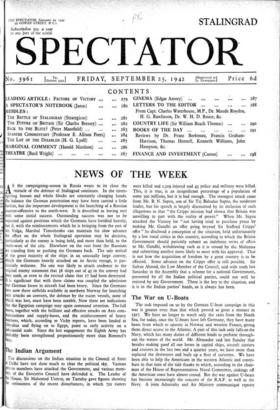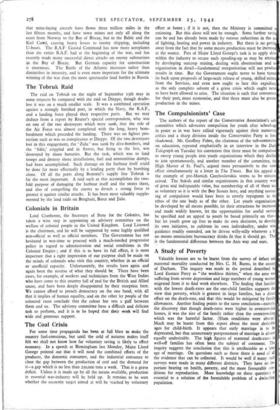The War on U-Boats
The task imposed on us by the German U-boat campaign in this war is greater even than that which proved so great a menace in 1917. 'We have no longer to watch only the exits from the North Sea, for today, once the U-boats have left Germany, they have many bases from which to operate in Norway and western France, giving them direct access to the Atlantic. A part of this task only falls on the Navy, which has many duties of different kinds to perform through- out the waters of the world. Mr. Alexander said last Sunday that besides making good all our losses in capital ships, aircraft carriers and cruisers in the last two and a quarter years, we have more than replaced the destroyers and built up a fleet of corvettes. We have been able to help the Americans in the western Atlantic and contri- bute to that turn of the tide thanks to which, according to the chair- man of the House of Representatives Naval Committee, sinkings off the American coast have almost ceased. But the war against U-boats has become increasingly the concern of the R.A.F. as well as the Navy. A joint Admiralty and Air Ministry communique reports
that mine-laying aircraft have flown three million miles in the last fifteen months, and have sown mines not only all along the coast from Norway to the Bay of Biscay, but in the Baltic and the Kiel Canal, causing heavy losses to enemy shipping, including U-boats. The R.A.F. Coastal Command has now more aeroplanes than the entire R.A.F. had at the beginning of the war, and has recently made many successful direct attacks on enemy submarines in the Bay of Biscay. But German capacity for construction is enormous. The Battle of the Atlantic increases rather than diminishes in intensity, and is even more important for the ultimate winning of the war than the more spectacular land battles in Russia.



























